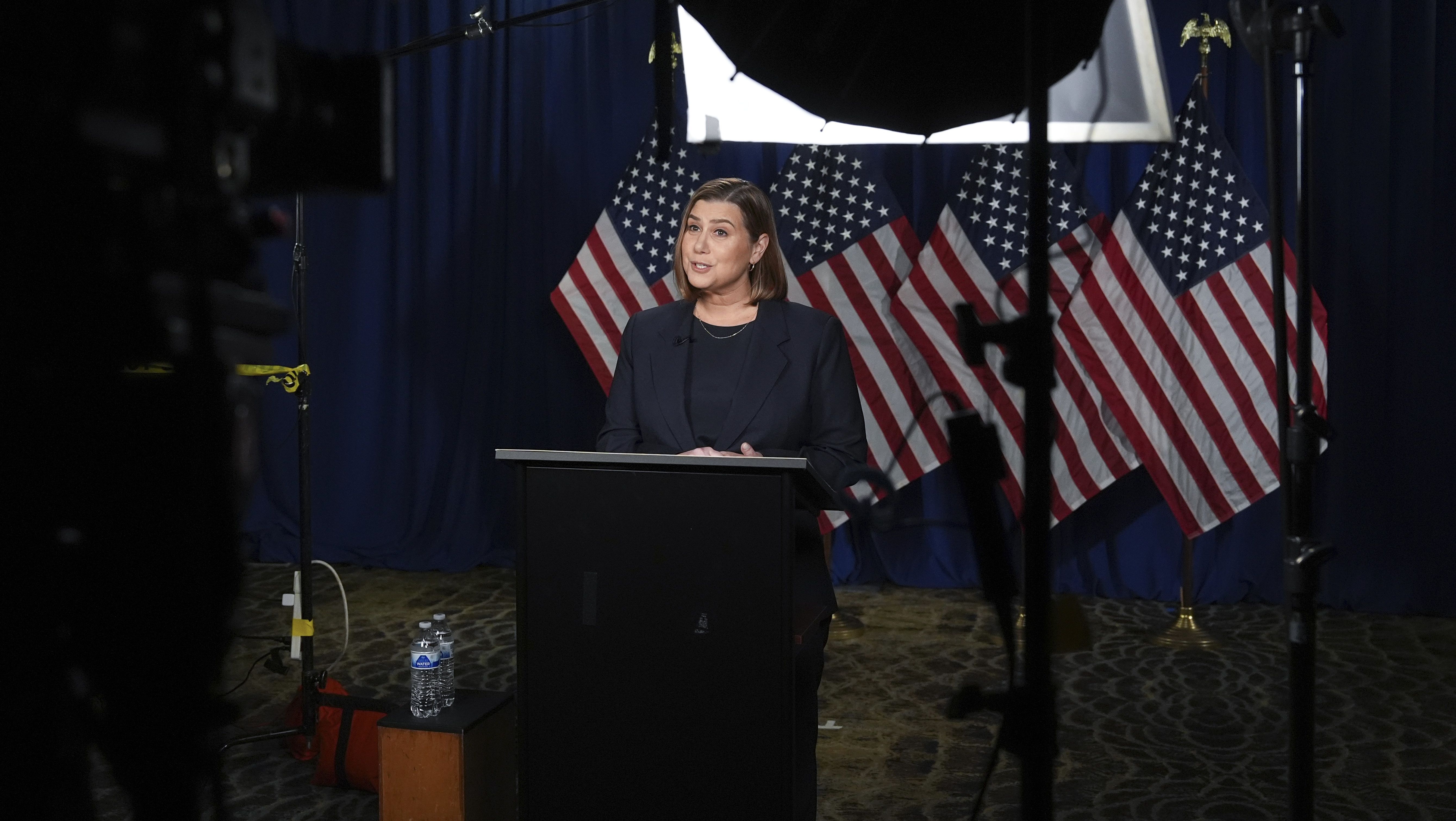In 2024, the Democratic Party ran a campaign that explicitly embraced Washington’s tired national security orthodoxy. Presidential nominee Kamala Harris campaigned alongside hawkish former GOP Congresswoman Liz Cheney and welcomed the endorsement of her father, Dick.
Meanwhile, the campaign refused to distance itself from the Biden administration’s unconditional support for Israel’s war on Gaza or its failed Ukraine policy. The party’s platform attacked Donald Trump, who, during his first term, brought the country to the brink of war with Iran, as being too soft on the Islamic Republic. The strategy ultimately proved ineffective.
Less than two months into Trump’s second presidency, the Democrats have apparently not learned any lessons.
There was certainly no discernible shift in party messaging to be found in Sen. Elissa Slotkin’s (D-Mich.) response to the president’s address to Congress on Tuesday. The recently-elected senator — herself a CIA veteran and an alum of the Bush and Obama administrations — delivered a speech full of nostalgia for past Republican presidents and doubled down on criticism of Trump’s supposed abandonment of American exceptionalism and global leadership.
“President Trump loves to promise ‘peace through strength.’ That's actually a line he stole from Ronald Reagan. But let me tell you, after the spectacle that just took place in the Oval Office last week, Reagan must be rolling over in his grave,” she said, referring to Trump and Vice President J.D. Vance’s explosive meeting with Volodymyr Zelensky. “As a Cold War kid, I'm thankful it was Reagan and not Trump in office in the 1980s. Trump would have lost us the Cold War.”
The president’s own speech was relatively light on foreign policy. Certainly there was space to criticize his continued push for aggressive unilateral actions in Greenland, Mexico, and the Panama Canal. But the Democratic respondent instead focused on his worldview, which she made a point of noting was a break with the two presidents under whom she served. “Donald Trump's actions suggest that, in his heart, he doesn't believe we are an exceptional nation,” said Slotkin. “He clearly doesn't think we should lead the world.”
The fact of the matter is that this Democratic rhetoric is increasingly unpopular, particularly among younger voters. Only 39% of Gen Xers and 43% of millennials agree with the belief that the United States is the greatest country in the world, according to a 2022 survey, compared to a majority of respondents from older generations. CNN polling recently found voters approved far more of Trump’s approach to Ukraine (+2% net approval) — the primary target of Slotkin’s rebuttal — than Biden’s in late 2024 (-22%). On the flip side, the more militaristic aspects of Trump’s foreign policy proposal, such as his repeated pledges to “take over” the Panama Canal, Greenland, Canada, or the Gaza Strip, poll in the negatives.
Trump mostly ignored the Middle East in his roughly 100-minute address. Some Democrats noticed, but rather than note that he shied away from defending his plan to forcibly remove Gazans from their homes, Rep. Dan Goldman (D-N.Y.) expressed his disappointment that Trump “did not express support for Israel.”
Trump’s foreign policy approach continues to be bombastic, inconsistent, and reckless at times. His administration is notably breaking diplomatic taboos by speaking directly with Russian President Vladimir Putin, and, as the White House confirmed on Wednesday, with Hamas officials. But the same day that that story broke, Trump directly threatened not only Hamas, but the “People of Gaza” that he will provide Israel with the necessary weapons to “finish the job” and that there “WILL BE HELL TO PAY LATER” if the remainder of the hostages in Gaza are not released immediately.
As the Quincy Institute’s Trita Parsi argued in the first weeks of the Trump presidency, the Democratic Party is running the risk of becoming the party of war. If Tuesday’s response is any indication, the Democratic message remains stale, anchored in outdated foreign policy orthodoxy. The party risks falling into that trap, becoming the party of war rather than one offering a fresh approach to America's role in the world.
















